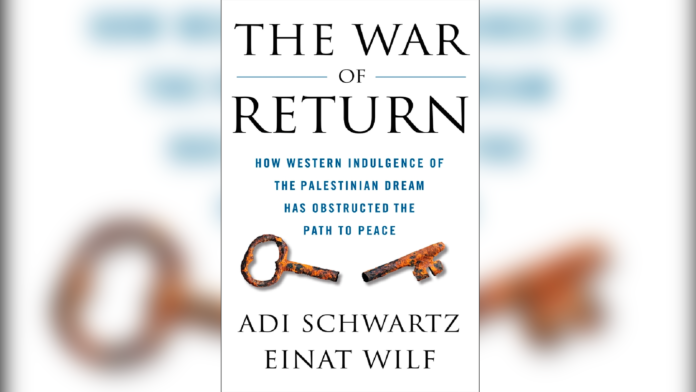In the wake of the Abrahamic Accords last year, a 2016 video of John Kerry proclaiming that it is “a hard reality” that there will not be peace between Israel and Arab nations before there is peace with the Arab Palestinians went viral on the internet.
Mr Kerry was clearly mistaken about the firmness of what he saw as reality. Likewise, New Zealand’s leaders could do better at reading the shifting sands of the Middle East.
It is easy to point at Kerry’s remarks and laugh because he was so strong in his conviction, yet only four years later his proclamation was proven so wrong. But the more serious side to that video is that intelligent, experienced, and savvy politicians, officials, and advisors have seemed to miss important details in the Arab-Israeli conflict and misread the situation.
Adi Schwartz and Dr Einat Wilf have written a book that clearly exposes an issue that prolongs the conflict and is all too often moved to one side, or even indulged, by pundits and potential peacemakers.
So abundant is the phenomenon, that Schwartz and Wilf introduce the term “Westplaining” (akin to “mansplaining”) to describe the excuses and wilful blindness that allows the Arab Palestinians to continue their war against Israel in the form of a demand to “return”. It is also the subtitle of their book – “how Western indulgence of the Palestinian dream has obstructed the path to peace”.
The refugee issue (the “dream” of “return”) has always been one of the “final status” items, but it is seldom discussed in great detail and “Westplaining” allows for one message to be sent in Arabic and another to be interpreted from vague English comments.
The well-referenced “The War of Return” sets out exactly how Arab leaders have used and abused the “right of return” and how Westerners have played along. The most obvious example of this pantomime is the continued support for the United Nations Relief and Works Agency (UNRWA).
Set up as a temporary agency to help the 750,000 or so people who fled or were forced from British Mandatory Palestine in 1948, the agency has not helped a single refugee to resettle anywhere. This is in sharp contrast to the UN agency that looks after all other refugees in the world – the United Nations High Commissioner for Refugees (UNHCR).
The other sharp contrast is in the definition of a refugee. UNRWA, unlike UNHCR, counts people who are citizens of another country as a refugee and also counts their children and their children’s children.
In perpetuating the ‘refugee’ issue, UNRWA also perpetuates the ‘war of return’ by essentially telling the more than 5 million people they now serve that they are refugees and will ‘return’ to Israel.
And in so doing, peace is impossible to achieve because, as Schwartz and Wilf write
“… the Palestinians have yet to renounce their demand for an exclusive Arab Palestine “from the River to the Sea”—a demand most evident in their continued refusal to agree to any language, any formulation, and certainly any agreement that would undermine and foreclose the Palestinian demand for return to the sovereign state of Israel. A true Palestinian reckoning with the notion that the Jewish people, as a people and a nation, possess a right, no less than them, to self-determination in the land that both peoples call home, is yet to take place.”
The authors set out not just the problem but also provide a roadmap toward a chance at peace. Unsurprisingly, that plan requires that Western nations shed the scales from their eyes and refuse to participate in the perpetuation of the war. Specifically, by requiring that UNRWA act more like UNHCR and that the Palestinians are not treated differently to any other people on earth.
This is a must-read book. If the lessons therein are taken on board by Western governments, and steps taken to stop “Westplaining”, we may get closer to a real peace. It won’t be easy given the institutional momentum, the geopolitical pressures, and the angst that often comes from telling hard truths.
But if hard truths are told, reality becomes harder and we’re not only less likely to see more embarrassing videos of world leaders but we may also see more progress.
The War of Return: How Western Indulgence of the Palestinian Dream Has Obstructed the Path to Peace
Hardcover : 304 pages
ISBN-10 : 1250252768
ISBN-13 : 978-1250252760



